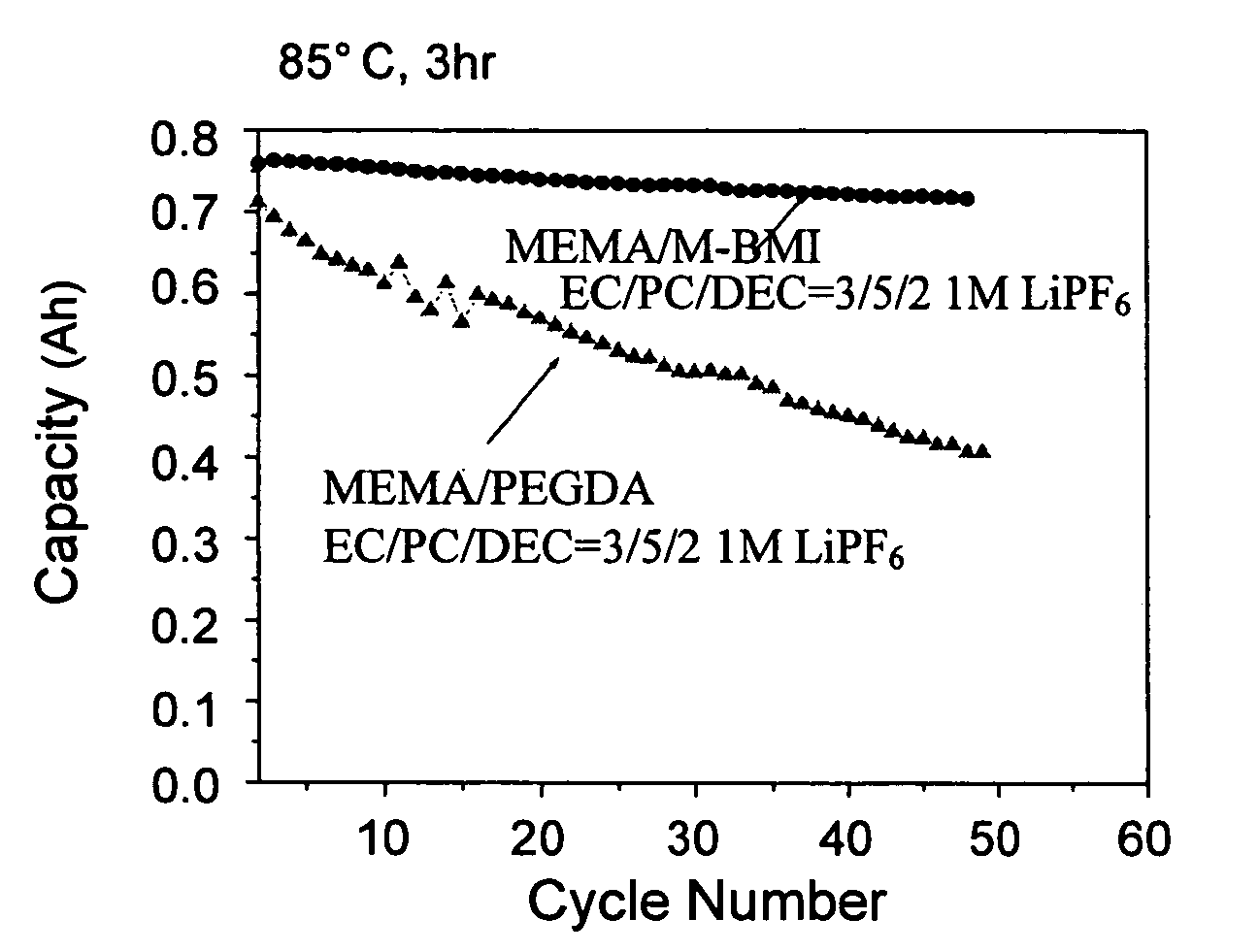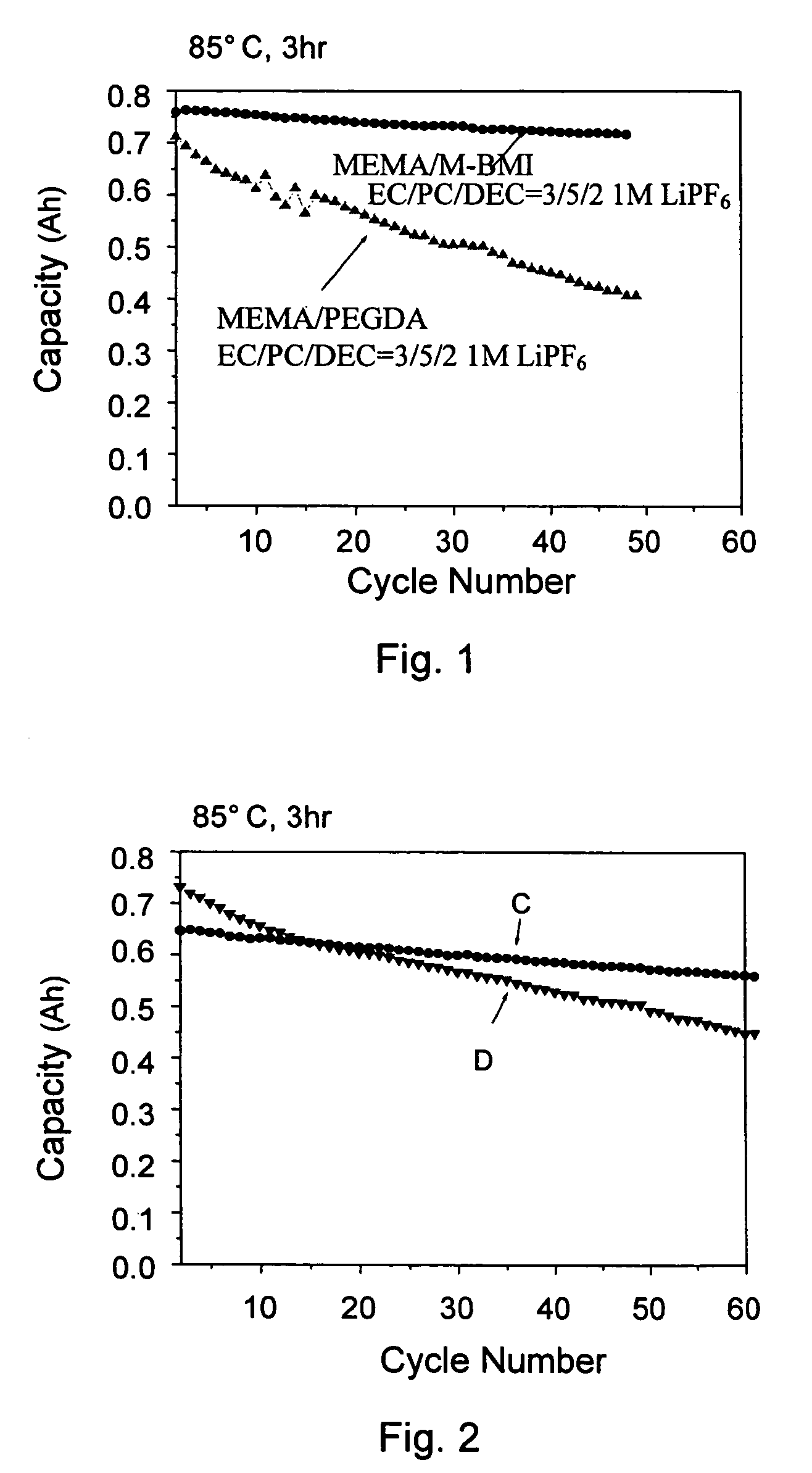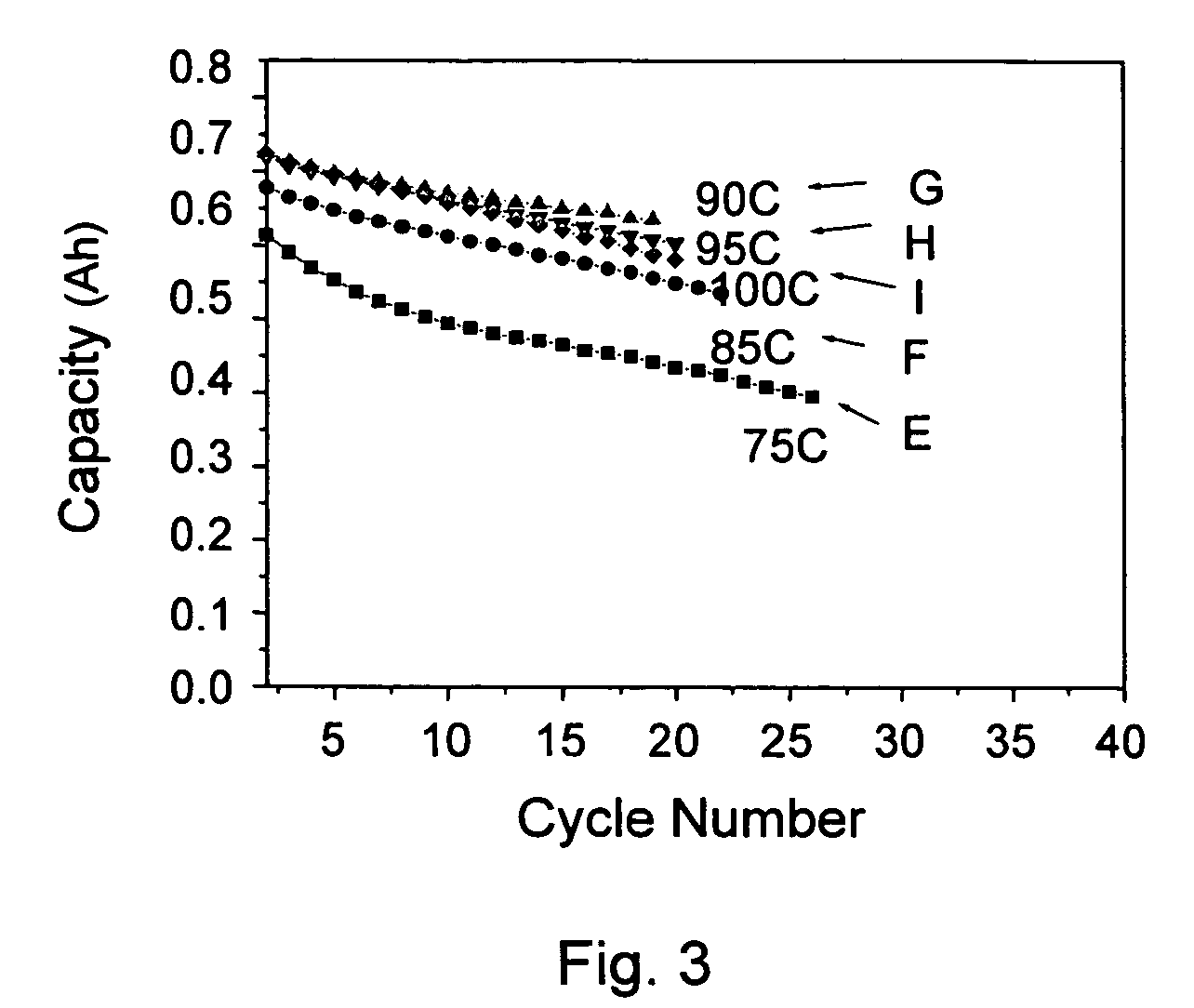High ionic conductivity gel polymer electrolyte for rechargeble polymber secondary battery
a polymer secondary battery and gel polymer electrolyte technology, applied in the direction of conductors, non-aqueous electrolyte cells, cell components, etc., can solve the problems of long operation life and complex production process of batteries produced, and achieve the effect of convenient manufacturing process
- Summary
- Abstract
- Description
- Claims
- Application Information
AI Technical Summary
Benefits of technology
Problems solved by technology
Method used
Image
Examples
example 1
Preparation of Modified Bismaleimide Oligomer
[0044]Bismaleimide and barbituric acid were mixed in a molar ratio of 3 / 1˜10 / 1, and then added with solvents γ-butyrolactone (GBL) or propylene carbonates. The resulting mixture was heated at 100˜150° C. for reaction for 0.5˜8 hours, thereby forming a modified bismaleimide oligomer. In this example, a modified bismaleimide oligomer was prepared at 130° C. according to the composition listed in Table 1.
[0045]
TABLE 1WeightN,N′-bismaleimide-4,4′-diphenylmethane59.613gbarbituric acid2.132gγ-butyrolactone, GBL247.059g
example 2
Preparation of Gel Polymer
[0046]In this example, gel polymers were prepared according to the formulas listed in Table 2 with or without the modified bismaleimide oligomer prepared from Table 1 in Example 1. Table 2 also lists the gelation time for the gel polymer formulas at 25° C. and 80° C., respectively.
[0047]
TABLE 2Gelation time (hour)Formula*25° C.80° C.1) AN: 5 g, PEGMA: 1 gwithout gelation2) MMA: 5 g, PEGMA: 1 gwithout gelation3) M-BMI: 5 g, PEGMA: 1 gwithout gelation4) M-BMI: 25 g, PEGDA: 1 gwithout gelation5) M-BMI: 25 gwithout gelation*The formulae contain 1% of 2,2-azo-bis-isobutyronitrile (AIBN) free radical initiator, based on the total weight of monomers and oligomersAN: acrylnitrileMMA: methyl methacrylateM-BMI: modified bismaleimide oligomer from Example 1PEGMA: poly(ethylene glycol) methacrylatePEGDA: poly(ethylene glycol) diacrylate
[0048]The results in Table 2 show that the modified bismaleimide oligomer from Example 1, under heating and the presence of AIBN free r...
example 3
Preparation of Gel Polymer Electrolytes, and Ion Conductivities Thereof
[0049]This example used a plurality of formulas to prepare gel polymer electrolyte precursors, which were gelled at 80° C. An AC impedance analysis was used to measure the impedance of an ion diffusion segment. The measured value was used in an ion conductivity formula to obtain an ion conductivity, σ=L / A×R, wherein σ is the ion conductivity, L is thickness, A is area, and R is resistance.
[0050]A common preparation process included: mixing a lithium salt electrolyte with an aprotic solvent to obtain an electrolyte solution; preparing a mixture of monomer / oligomer / free radical initiator; mixing the electrolyte solution with the mixture to obtain a gel polymer electrolyte precursor; and heating the precursor to form a gel polymer electrolyte.
[0051]Table 3 listed the formulae of the conventional liquid electrolytes and gel polymer electrolytes according to the present invention, and the ion conductivity thereof.
[005...
PUM
| Property | Measurement | Unit |
|---|---|---|
| ion conductivity | aaaaa | aaaaa |
| ion conductivity | aaaaa | aaaaa |
| ion conductivity | aaaaa | aaaaa |
Abstract
Description
Claims
Application Information
 Login to View More
Login to View More - Generate Ideas
- Intellectual Property
- Life Sciences
- Materials
- Tech Scout
- Unparalleled Data Quality
- Higher Quality Content
- 60% Fewer Hallucinations
Browse by: Latest US Patents, China's latest patents, Technical Efficacy Thesaurus, Application Domain, Technology Topic, Popular Technical Reports.
© 2025 PatSnap. All rights reserved.Legal|Privacy policy|Modern Slavery Act Transparency Statement|Sitemap|About US| Contact US: help@patsnap.com



